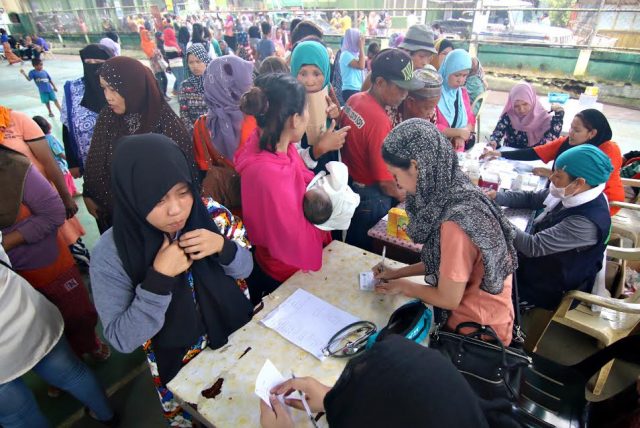
MANILA – The Asian Institute of Management recently held a forum on the potential of big data to improve Filipinos’ quality of life. This ranged from making the MRT system more efficient, to predicting which coastal communities and evacuation centers will be affected by storm surges.
While there were many examples of how big data was already being used by foreign and local entities to solve real-world problems, public officials acknowledged the challenge many Filipinos faced when trying to get information from government agencies: it was simply inaccessible.
A person who worked at the Philippine Competition Commission (PCC) was in the audience, and could not help but note how government agencies “kept a tight lid” on data. Most of it was either printed on paper, or in PDF. This meant those who needed to use that data had to re-enter it in the computer by hand.
There was also a reluctance to share data with others, he said.
He asked the Department of Information and Communications Technology (DICT) Undersecretary Monchito Ibrahim about what the government was doing to “loosen the grip” on data, to which Ibrahim replied, “Right now, medyo mainit ang mata ni Presidente sa mga [the President is keeping a close eye on] government agencies who are not able to respond to requests like that.”
The DICT Undersecretary added that Filipinos could call the Citizens’ Complaint Hotline at 8888 if government agencies did not provide the data they requested.
Ibrahim also noted that President Rodrigo Duterte had signed the executive order on freedom of information last year, which states: “Every Filipino shall have access to information, official records, public records and to documents and papers pertaining to official acts, transactions or decisions, as well as to government research data used as basis for policy development.”
This was as long as the documents requested for was “not security-sensitive,” Ibrahim said.
Digitizing medical records
He added that they were embarking on a “huge project” – digitizing all Philippine medical records with PhilHealth and the Department of Health.
As for DICT, Ibrahim said they were ensuring that all their data was easily accessible, searchable, and understandable.
Unfortunately, the Philippines was still in the process of producing data scientists who could handle big data. As for those who did study data science, said Ibrahim, they opted to work abroad. There was also a need for data science practitioners to train teachers in the Philippines.
For his part, Dr. Erniel Barrios, a faculty member of the School of Statistics at the University of the Philippines Diliman, expressed hope that the Senate would continue to pursue the creation of the Philippine Big Data Center under Senate Bill No. 688, which was authored by Senator Bam Aquino, a member of the minority.
Based on the Senate website, the Big Data Act was pending in the Committee on Science and Technology as of August 2016.
‘Public-use files’ available in 2017
Barrios, who had worked with the Philippine Statistics Authority (PSA), reported that the latter was going to make all “public-use files” available for free within the year.
“They’re just trying to fix the infrastructure for security issues and so on,” he said.
“However I know very well that many government agencies still cling to the data that they have in the PDF file, or worse, in hard copy. Many of them are in that form,” he added. The government was still “struggling” to digitize reports.
Barrios was “disheartened” to know that government data which had many potential uses were just gathering dust in shelves.
“There’s such a thing as data territoriality among government agencies, because they think that if they share their data, they will lose their value in the agencies,” he said.
Barrios pointed out that to access certain data sets, one had to pay the government agency in charge of them first.
Among his recommendations were for data owners to agree to democratize access; capabilities in information technology, computing, data science, and data mining to be enhanced; and for legislation on big data to be passed.







